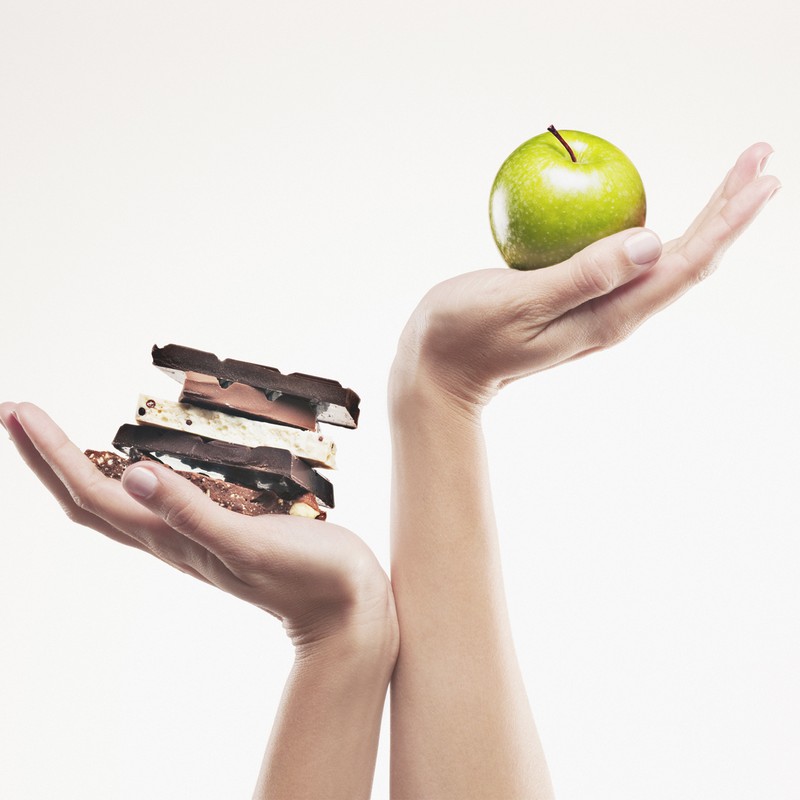6 Reasons You Shouldn’t Count Calories
1. Not All Calories Are Created Equal
“Thinking that all calories are the same is an antiquated notion,” explains Phillips. “Granted, by definition calories represent units of energy provided by a particular food, but countless studies have proven different foods are metabolised differently, absorbed differently, and converted into fat or energy differently.”
Let us put it to you this way – if you had a 100-calorie pack of chocolate biscuits in one hand and 100 calories’ worth of almonds in the other, which would you say was the healthier snack? It doesn’t matter how many calories are in a food; what matters is the quality of that food and how nutrient-dense it is.
2. It’s Not A Sure-Fire Route To Weight Loss
“Losing weight is much more complex than calories in versus calories out. Stress, hormones, food allergies and intolerances and so many other factors can contribute to our personal ability to lose weight,” Phillips explains.
“I’d even go so far as to say that it becomes easier to lose weight if you aren’t obsessing over calories. It’s amazing how, when you remove restriction from the equation, people often naturally eat less,” she adds.
3. Nutrient-Deficient Food Won’t Satisfy You
Research has shown that you can eat 1,500, 3,000 or 5,000 calories a day, but if you’re not getting a boost of nutrient-rich power in every bite, you won’t feel satisfied and you certainly won’t feel healthy – your body will just signal to you to keep eating in the hope that it gets the nutrients it needs.
“Take, for example, a bowl of fruit. It may contain the same calories as a bag of sweets, but your body will process these two foods in a completely different way. Plus, you’ll be benefitting from the extra vitamins and minerals in the fruit which isn’t something that’s accounted for when calorie counting,” Phillips says.
4. It Can Trigger An Unhealthy Relationship With Food
Phillips reveals she never advises people to count calories as she worries it could lead to feelings of guilt, a pre-occupation with food and even disordered eating. In the case of someone who wants to lose weight, it can also fail to address the reasons why they may overeat in the first place.
“A lot of individuals come to see me with a disordered approach to food due to regimented advice or dieting in the past. I’d much rather my clients focus on seeing food in a positive rather than restrictive way,” she says.
5. Labels Can Lie
Did you know calorie counts on food labels aren’t necessarily 100% accurate? And that just because something is low-fat or gluten-free doesn’t mean it’s the best option?
“Food packaging can be extremely misleading. If you find going to the supermarket overwhelming, try not the look at the calorie content,” Phillips explains. “The majority of foods that claim to be low-calorie are likely to be pre-packaged, and as a general rule, pre-packaged foods tend to be more processed. You should be aiming to buy food in its most natural state – think whole vegetables, grains and lean proteins.”
6. You Can Lose Track Of Hunger Cues
When you’re counting calories, you’re sticking with a pre-prescribed amount of food per day (i.e. a calorie budget). As Phillips explains, this usually results in people not eating when they’re hungry or eating even though they feel satiated so they don’t ‘lose out’ on the calories they’ve already planned for.
Feel as though your hunger signals are out of whack? “Try cutting out snacking and just eating three meals a day – this will mean that, come mealtime, you’ll be much more aware of how hungry you actually are,” she advises. “Snacking can be beneficial for some people, but this simple trick will make you much more of aware of when you need to eat, as opposed to boredom, habit or convenience.”
For more information or to book an appointment with Frances Phillips, visit TheNaturalEdit.com
DISCLAIMER: We endeavour to always credit the correct original source of every image we use. If you think a credit may be incorrect, please contact us at info@sheerluxe.com.


